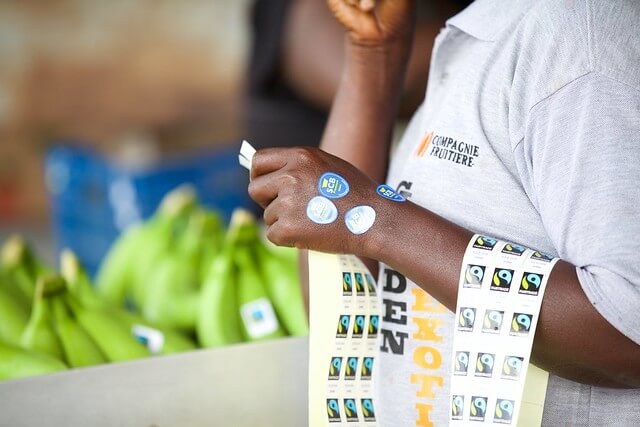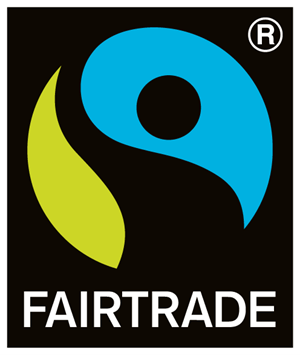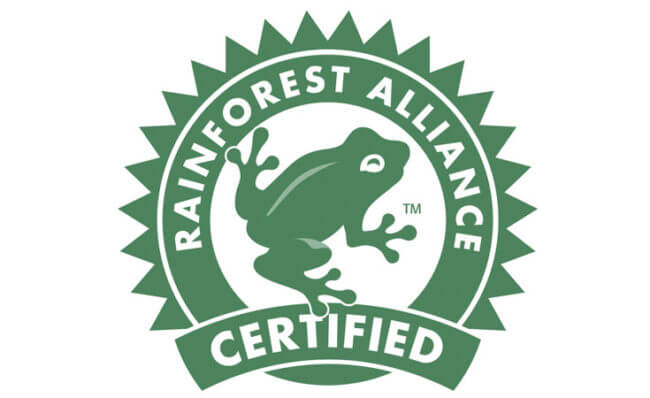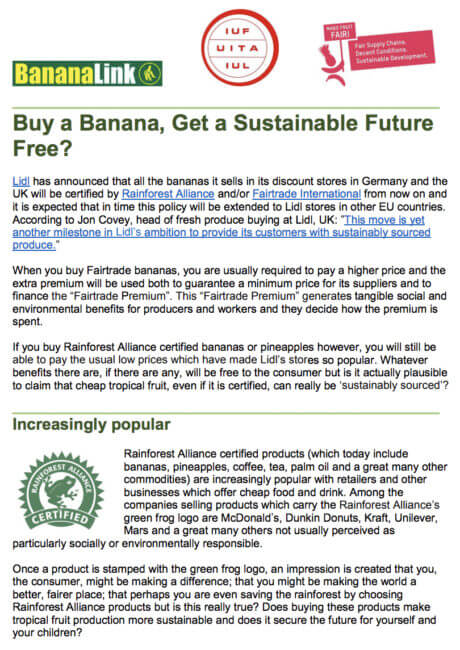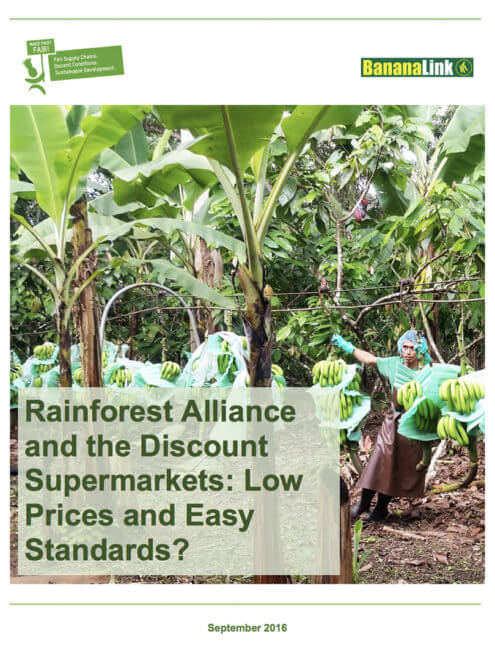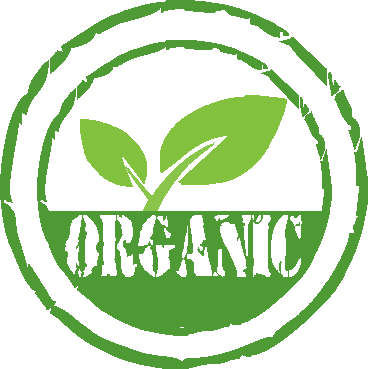Sustainability standards and certifications are voluntary, usually third party-assessed, norms and standards relating to environmental, social, ethical and food safety issues, adopted by companies to demonstrate the performance of their organisations or products in specific areas. There are over 400 such standards across the world.
Normally sustainability standards are accompanied by a verification process – often referred to as “certification” – to evaluate that an enterprise complies with a standard, as well as a traceability process for certified products to be sold along the supply chain, often resulting in a consumer-facing label. Certification programmes also focus on capacity building and working with partners and other organisations to support smallholders or disadvantaged producers to make the social and environmental improvements needed to meet the standard.
The most common of these that you will see in UK shops are Fairtrade, Rainforest Alliance and Organic certification, which are explained below
